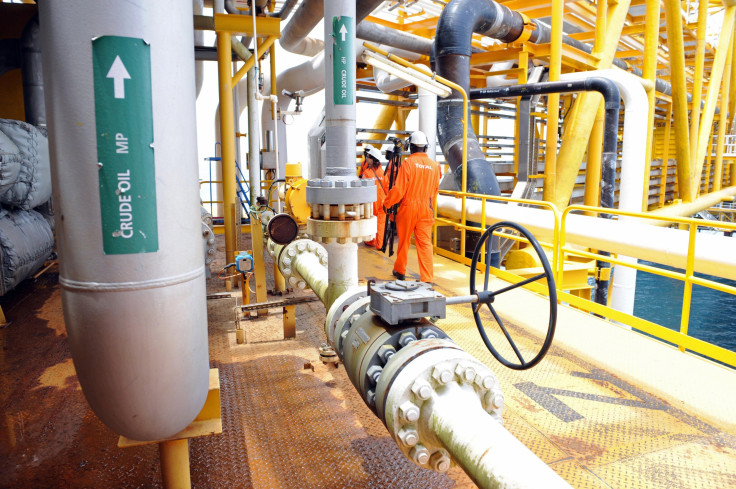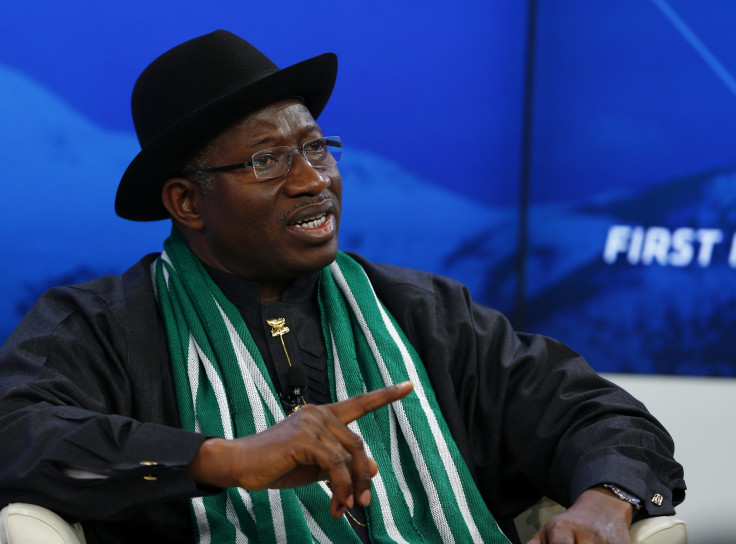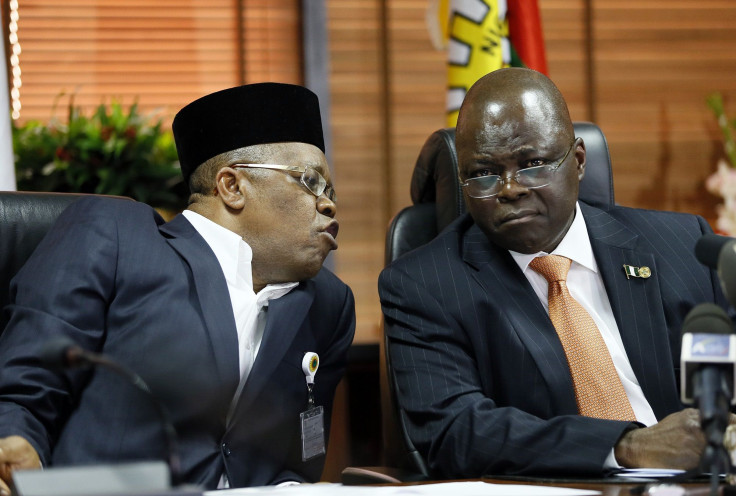Under Goodluck Jonathan, Nigerian National Petroleum Corp Stole Trillions

Nigeria’s state oil corporation stole nearly half of the trillions it earned in the past three years while under the watch of former President Goodluck Jonathan, corporate officials revealed to a federal economic council Monday at the presidential villa in Abuja, Nigeria. President Muhammadu Buhari’s administration learned that the Nigerian National Petroleum Corporation (NNPC) generated about 8.1 trillion naira ($40.7 billion) from 2012 to 2015, but only paid the federal government a little more than half, according to local media.
The NNPC withheld and illegally spent what was left of the oil money -- about 3.8 trillion naira ($19.1 billion) -- without approval from the Nigerian government. It was the first time the corporation briefed the National Economic Council, and the meeting’s revelations suggested the extent of corruption within Nigeria’s oil sector, which Buhari has vowed to clean up, according to local newspaper Premium Times.
“This has never happened before, and for us, this is profound. We are talking about transparency, we are talking about change. And what we saw from those numbers, I believe that Nigerians are entitled to know,” Gov. Adams Oshiomhole of the oil-rich Edo state told local media in Abuja Monday, disclosing details from the meeting. “That tells you how much is missing, what is mismanaged, what is stolen, they are huge figures.”

The Edo state governor said the oil corporation would not have gotten away with its illicit spending and only remitting half of its earnings if there had been transparency and budgeting. Oshiomhole said the National Economic Council also learned that more than half of the money reported to be in the excess crude account was withdrawn without approval last November. The account, which is in part owned by the federal, state and local governments, now has about 400 billion naira ($2 billion).
Buhari, who ordered the briefing, dissolved the NNPC’s board last week to allow for a thorough investigation. The National Economic Council, which was set up by Buhari, created a four-member committee of Nigerian state governors to probe the books of the oil corporation to confirm its payments to the federal government and how the excess crude funds were spent, according to Premium Times
“We have not been given a time frame, but, as you can imagine, state governments are under pressure. Many of our state governments are unable to pay salaries on time without recourse to borrowing, so this is very important to us,” Kaduna state Gov. Nasir El-Rufai told local media Monday. “This is an all-governors committee. We wear the shoes, we know where it pinches. So we are going to do this as quickly as possible.”

Buhari and his ruling All Progressives Congress party have accused previous administrations of corruption and leaving behind millions of dollars of debt. Buhari, who took office May 29, was quoted by local media last week as saying his administration inherited a “virtually empty” treasury “with debts in millions of dollars, with state workers and even federal workers not paid their salaries,” according to Vanguard news.
Nigeria is Africa’s richest and most populous nation, and it is the largest oil producer on the continent. But the oil-dependent country has suffered from the tumbling price of oil, causing Nigerian lawmakers to call for a bailout to cover unpaid government salaries in several states, where some workers have not been paid for as long as 10 months.
Nigeria’s previous government has fired back at the claims, saying Jonathan himself had inherited a large debt and his administration spent money responsibly.
© Copyright IBTimes 2024. All rights reserved.




















